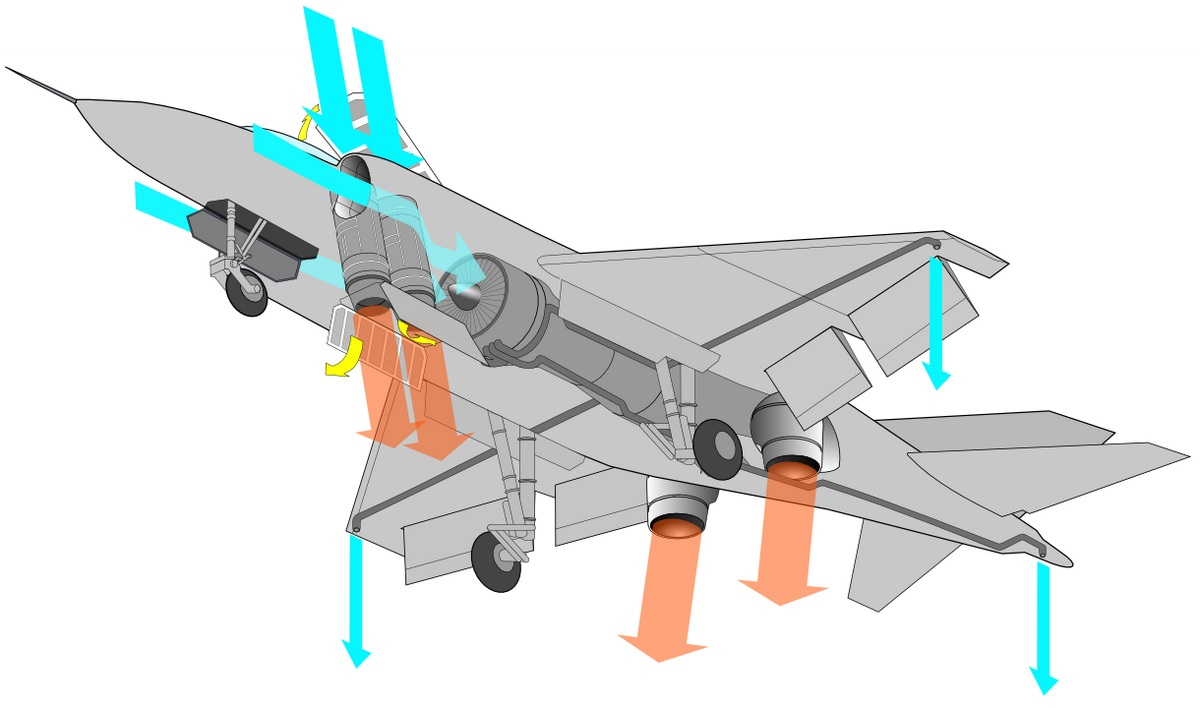The eVTOL (Electric Vertical Takeoff and Landing) Aircraft Market is segmented across various parameters, including lift technology (Vectored Thrust, Multirotor, Lift Plus Cruise), mode of operation (Piloted, Autonomous, Semi-Autonomous), range (0-200 Km, 200-500 Km), and maximum take-off weight (MTOW: <250 Kg, 250-500 Kg, 500-1500 Kg, >1500 Kg). It also considers propulsion types such as Battery-Electric, Hybrid-Electric, and Hydrogen-Electric.
Applications span commercial (Air Taxi, Delivery Drones), military (Cargo Transport, Combat Missions), and emergency medical services (Air Ambulance, Medical Cargo Transport). The market forecast covers the period from 2024 to 2032, with regional footprints analyzed to provide insights into growth opportunities and trends.
The eVTOL Aircraft Market is expected to be valued at USD 1.2 billion by 2024 and is projected to grow to USD 4.05 billion by 2032, with a compound annual growth rate (CAGR) of 14.5% during the forecast period from 2024 to 2032.
Get the Sample Research Report Copy on eVTOL Aircraft Market: https://www.marketdigits.com/request/sample/3633
Why the Demand for eVTOL Aircraft Has Increased in Recent Years
The Electric Vertical Takeoff and Landing (eVTOL) aircraft market has experienced significant growth in recent years, driven by several key factors that highlight the evolving nature of transportation and technological advancements. Here are the primary reasons for the surge in demand:
Advancements in Battery Technology: Significant improvements in battery efficiency and energy density have made eVTOL aircraft more feasible. These advancements have contributed to longer flight ranges and shorter charging times, significantly enhancing the practicality of eVTOLs for urban air mobility.
As a result, eVTOLs are becoming more reliable and viable for widespread use.
Urbanization and Traffic Congestion: Rapid urbanization has led to increased traffic congestion in major cities around the world. With traffic gridlocks becoming more common, there is an urgent need for alternative modes of transportation.
eVTOL aircraft offer a solution by bypassing ground traffic and providing faster, more efficient travel options, which significantly reduce travel time and ease congestion in urban areas.
Environmental Concerns: As environmental awareness grows globally, there is an increasing demand for sustainable transportation solutions. eVTOL aircraft, especially those powered by electric or hydrogen-electric propulsion, produce fewer emissions than traditional combustion-engine vehicles.
This aligns with global efforts to reduce carbon footprints and promote cleaner, greener alternatives for air travel.
Government Support and Regulatory Developments: Governments worldwide are providing substantial support to the eVTOL sector through favorable policies, funding, and regulatory frameworks. For example, the U.S. Federal Aviation Administration (FAA) has introduced new categories for powered lift aircraft to accommodate the integration of eVTOLs into the national airspace.
This proactive regulatory approach facilitates the future deployment of eVTOLs, creating a supportive environment for their growth.
Why the Demand for eVTOL Aircraft Is Expected to Increase in the Coming Years
The future of eVTOL aircraft is poised for continued expansion, driven by technological, infrastructural, and market developments. The following factors are expected to propel the demand even further in the coming years:
Infrastructure Development: Ongoing investments in infrastructure, such as the construction of vertiports and advanced air traffic management systems, are laying the foundation for the widespread adoption of eVTOL aircraft. For instance, China aims to have 100,000 flying cars operating within its cities by 2030, with key infrastructure already in place for their deployment. Such developments in infrastructure are set to accelerate the adoption of eVTOL aircraft and bring them closer to mainstream use.
Commercialization and Market Expansion: With several companies, including Joby Aviation and Archer Aviation, progressing towards the commercialization of eVTOL aircraft, the market is on the brink of significant expansion.
As these companies move closer to operational status, eVTOLs are expected to become an integral part of urban transportation systems, particularly for air taxis and cargo transport, significantly enhancing mobility options in cities.
Investment and Industry Growth: The eVTOL sector continues to attract substantial investments, with companies securing billions of dollars in funding to advance technology, infrastructure, and production capabilities. This financial backing is accelerating the development of eVTOL aircraft, ensuring that the market is poised for rapid growth. As investor confidence increases, more companies are entering the market, further fueling innovation and competitive growth in the eVTOL industry.
Get the complete view of 193 Pages Research Report on eVTOL Aircraft: https://www.marketdigits.com/evtol-aircraft-market-1700554723
Innovations and Technologies in the eVTOL Aircraft Industry: Key Developments by Leading Companies
The Electric Vertical Takeoff and Landing (eVTOL) aircraft industry is advancing rapidly, with several prominent companies at the forefront of innovation. Below is an overview of the latest technologies and developments from key players in the field, supported by the most recent data and advancements.
1. Airbus SE
Airbus has made significant strides in the eVTOL sector with its CityAirbus NextGen, an all-electric aircraft designed for urban air mobility. This aircraft features a lift-and-cruise configuration, offering a range of 80 km and a cruise speed of 120 km/h. However, in January 2025, Airbus announced the pause of its CityAirbus NextGen program to refocus its efforts on other urban air mobility solutions. This decision indicates a strategic shift while maintaining a commitment to the development of sustainable air transportation.
2. Bell Textron Inc.
Bell's Nexus 4EX is an innovative hybrid-electric eVTOL aircraft designed to address the growing demand for urban air mobility. Capable of carrying up to four passengers, the Nexus 4EX aims to offer an efficient and sustainable transportation solution with a range of approximately 60 miles. Bell continues to work with industry partners to advance the development and certification of the Nexus 4EX, positioning the company as a key player in the evolving eVTOL market.
3. EHang Holdings Ltd.
EHang has achieved several milestones with its EH216-S, a pilotless eVTOL aircraft designed for autonomous air taxi services. In November 2024, EHang completed the world's first eVTOL flight using solid-state battery technology, a breakthrough that significantly enhances the energy density and safety of these aircraft. The 48-minute flight demonstrated the potential of solid-state batteries in eVTOL technology, paving the way for more efficient and longer-duration flights.
4. Embraer SA
Embraer’s Eve Air Mobility is a key player in the eVTOL market, focusing on the development of aircraft that are set to revolutionize urban air transportation. In December 2024, Eve secured an additional US$35 million from the BNDES Line to further accelerate its eVTOL development efforts. This funding is expected to support the testing and certification processes, with plans to enter commercial service in the near future, positioning Eve as a significant contributor to the future of urban air mobility.
5. Joby Aviation
Joby Aviation is leading the charge in integrating hydrogen-electric propulsion into the eVTOL sector. In June 2024, the company successfully completed a 523-mile flight using a hydrogen-electric technology demonstrator aircraft, marking a major milestone toward developing long-range, zero-emission eVTOL aircraft. This achievement demonstrates the potential of hydrogen-electric propulsion systems in extending the operational range of eVTOL aircraft, advancing the company's mission to provide sustainable and efficient urban air mobility solutions.
Get a Discount on the Premium Research Report on eVTOL Aircraft Market: https://www.marketdigits.com/request/discount/3633
Frequently Asked Questions (FAQs) about the eVTOL Aircraft Market
Q1: How big is the eVTOL market in 2024?
The eVTOL (Electric Vertical Takeoff and Landing) aircraft market is expected to experience significant growth in 2024. The market size in 2024 is USD 1.2 billion in 2024, with an anticipated compound annual growth rate (CAGR) of 14.5% from 2024 to 2032.
This growth is driven by the rising demand for urban air mobility solutions, technological advancements, and increasing investments in eVTOL development.
Q2: What is the future of the eVTOL market?
The future of the eVTOL market looks highly promising, with rapid growth expected in the coming years. The expansion of the market will be fueled by innovations in artificial intelligence and increased demand for efficient, sustainable, and zero-emission urban air mobility solutions.
The continuous advancements in battery technologies, propulsion systems, and regulatory approvals are expected to propel the industry forward, with commercial eVTOL services likely to launch in various cities worldwide.
Q3: Who is leading in eVTOL?
Several companies are making significant strides in the eVTOL industry, with Joby Aviation, Archer Aviation, Eve Air Mobility, Vertical Aerospace, and Beta Technologies among the leaders in this space.
Joby Aviation is a major player with its advanced electric aircraft designed for urban air mobility. The company has secured substantial investments to advance its technology and is actively working on obtaining regulatory approvals for commercial services.
Archer Aviation is developing the "Midnight" eVTOL, a fully electric aircraft aimed at transforming urban transportation. The company has formed strategic partnerships to accelerate its development.
Eve Air Mobility, an Embraer spinoff, is focusing on the development of electric aircraft to address urban transportation challenges and aims to enter commercial service in the near future.
Vertical Aerospace is leading with its commitment to sustainable aerial innovation, recently achieving key certification milestones for its eVTOL aircraft.
Beta Technologies is advancing its sustainable transportation solutions with its eVTOL aircraft, emphasizing environmental benefits and operational efficiency.
Q4: Which eVTOL company is best?
Determining the "best" eVTOL company depends on various factors such as technological innovation, regulatory approval, market readiness, and strategic partnerships. While Joby Aviation, Archer Aviation, Eve Air Mobility, Vertical Aerospace, and Beta Technologies are all leading the industry with impressive advancements, each company has unique strengths that make it a key player in the eVTOL market.
Joby Aviation is renowned for its progress in electric vertical takeoff and landing technology, with strong financial backing and a robust development pipeline.
Archer Aviation is gaining traction with its fully electric Midnight aircraft, aimed at transforming urban air mobility in cities.
Eve Air Mobility benefits from its affiliation with Embraer and has a clear path to commercializing its eVTOL solutions.
Vertical Aerospace stands out for its certification achievements and a strong focus on sustainable aerial technologies.
Beta Technologies is focused on sustainable and innovative eVTOL solutions with an eye toward redefining the future of aerial transport.
Other Trending Reports
Automotive Wireless Charger Market: https://www.marketdigits.com/automotive-wireless-charger-market-1699437040
Automotive E-compressor Market: https://www.marketdigits.com/automotive-e-compressor-market-1700224600
eVTOL Aircraft Market: https://www.marketdigits.com/evtol-aircraft-market-1700554723
Autonomous Navigation System Market: https://www.marketdigits.com/autonomous-navigation-system-market-1700554723
Automotive Sensors Market: https://www.marketdigits.com/automotive-sensors-market-1700638662
Automotive Electric Drivetrain Components Market: https://www.marketdigits.com/automotive-electric-drivetrain-components-market-1700659525
Electric Vehicle E-Axle Market: https://www.marketdigits.com/electric-vehicle-e-axle-market-1700659525
Autonomous Drone Market: https://www.marketdigits.com/autonomous-drone-market-1701869386
Automotive LiDAR Market: https://www.marketdigits.com/automotive-lidar-market-1702550554
Automatic Car Wash Machine Market: https://www.marketdigits.com/automatic-car-wash-machine-market-1706096798



